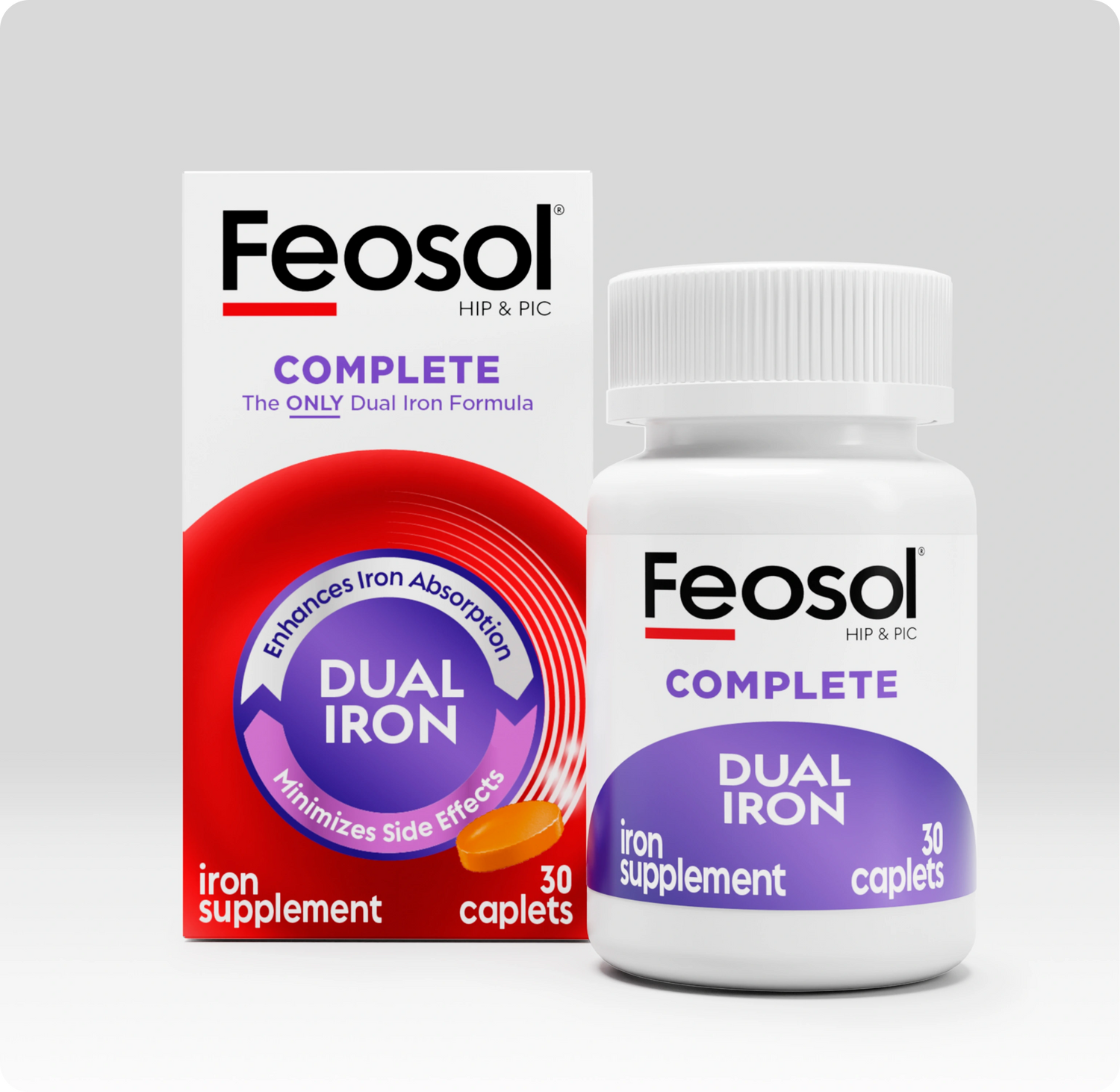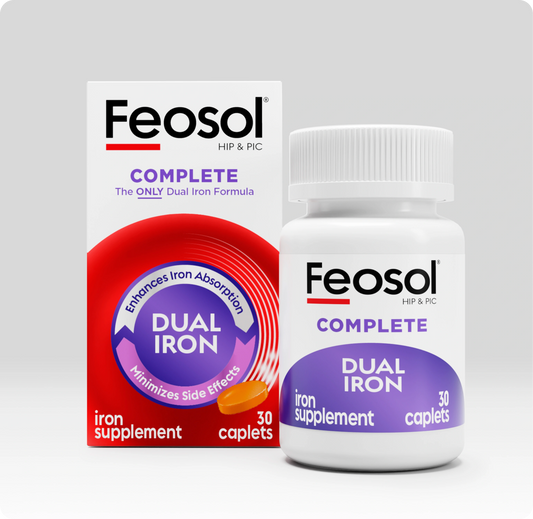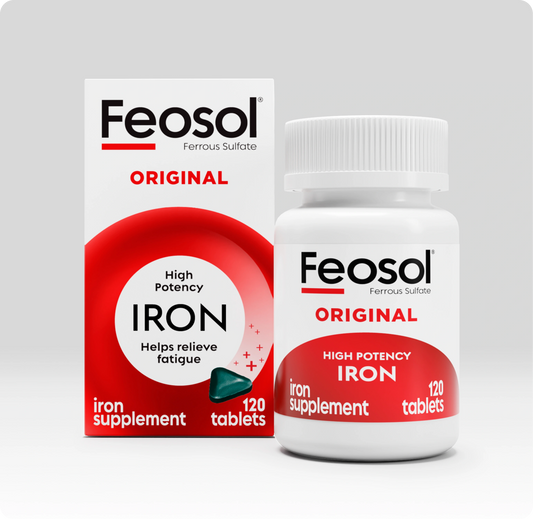Iron deficiency is the most common nutritional deficiency in the United States. Iron deficiency is a condition resulting from having too little iron in the body.
Why do we need iron?
Iron is an essential mineral and has a number of important functions. Iron helps our muscles store and use oxygen, and, as part of the protein hemoglobin, iron helps carry oxygen from our lungs to the rest of our bodies.
When we don’t have enough iron, these functions can become impaired. Anemia results when the body has too little hemoglobin, and physical symptoms of iron deficiency begin to appear.
Common Symptoms of Iron Deficiency and Anemia
Iron deficiency and iron deficiency anemia inhibit the body’s ability to efficiently carry oxygen throughout the body, which can manifest in the following symptoms:
- Feeling weak and fatigued
- Difficulty maintaining body temperature
- Decreased immune function
- Decreased work and school performance
- Slow cognitive and social development during childhood
- An inflamed tongue (glossitis)
What Causes Iron Deficiency?
There are a number of reasons for iron deficiency. Iron deficiency may be a sign of a more serious condition, however, simply not taking in enough dietary iron is a common reason. Other causes of iron deficiency include:
- Increased Iron Needs: Iron deficiency can also be caused by increased iron needs. Women who are pregnant have higher iron needs.
- Poor Absorption: Vegetarians are especially vulnerable to iron deficiency because they must rely on non-heme (plant-based) sources of iron, which are less easily absorbed by the body than animal-based iron sources.
- Blood Loss: Finally, blood loss from menstruation, blood donation or other bleeding can cause iron deficiency. Endurance athletes may also experience minor blood loss due to “foot strike” – a condition that can cause bruising in the soles of the feet
-
Centers for Disease Control and Prevention. Nutrition for Everyone: Iron and Iron Deficiency. Retrieved from: http://www.cdc.gov/nutrition/everyone/basics/vitamins/iron.html. March 7, 2012.





